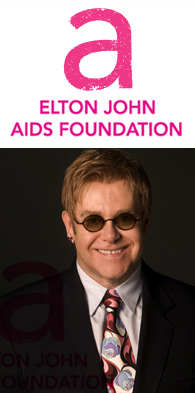The Elton John AIDS Foundation (EJAF), an international charity that
supports AIDS intervention programmes, has issued a statement calling on the government of Nepal "to show leadership in promoting the rights of all its citizens… including sensitising its regional officials, particularly those involved in responding to the HIV/AIDS epidemic to the needs and rights of sexual minority groups."

Sir Elton John: ''I have to speak my mind because as a gay man now I have a responsibility to. I sat back too long.''
Saying that it is "extremely proud" to support BDS and the HIV/AIDS work that they are undertaking in Nepal, the EJAF is "appalled to hear about the bigoted and factually incorrect attitudes shown at the meeting organised by the District Public Health Office in Dhangadi this month."
Sunil Pant, president of BDS, said he was astounded at what was said at a regular monthly meeting organised by the District Public Health Office and was attended by a BDS representative.
Pant said: "The public health officer Krishna Bhatta claimed that there are no 'sex tissues' in the anus and so there's no chance of HIV/AIDS transmission through anal sex" and that "there [are] no MSM/MSW/TG in Dhangadi, so I believe this Care and Support program in Dhangadi for MSM/MSW/TG is absolutely unnecessary."
According to reports, Bhatta's statements were supported by at least two NGOs present at the meeting who said a support programme for gays would "promote homosexuality, which will pollute the entire society."
In related news, Sir Elton John expressed his guilt at not speaking up for gay rights earlier in his career.
"I have to speak my mind because as a gay man now I have a responsibility to. I sat back too long," the British superstar said.
"When Act Up were going in and trying to change the face of AIDS awareness in America because nobody else was doing it, I sat back and
did nothing."
Describing the charity as the most important part of his public life, it has raised more than US$125m since it was set up in 1992 to support HIV-related programmes in 55 countries, including Nepal.
